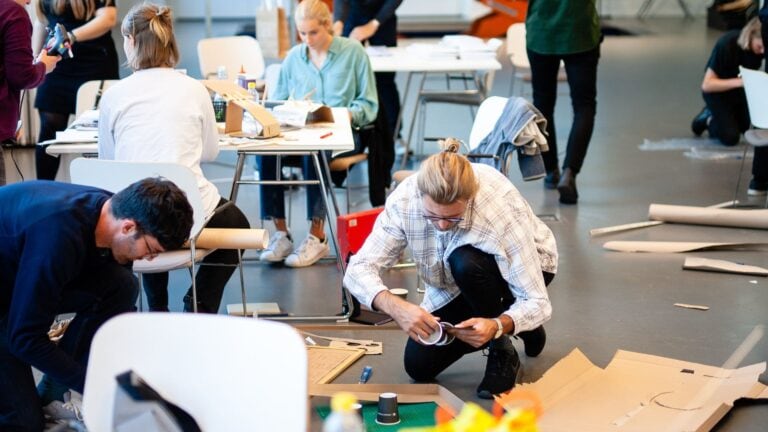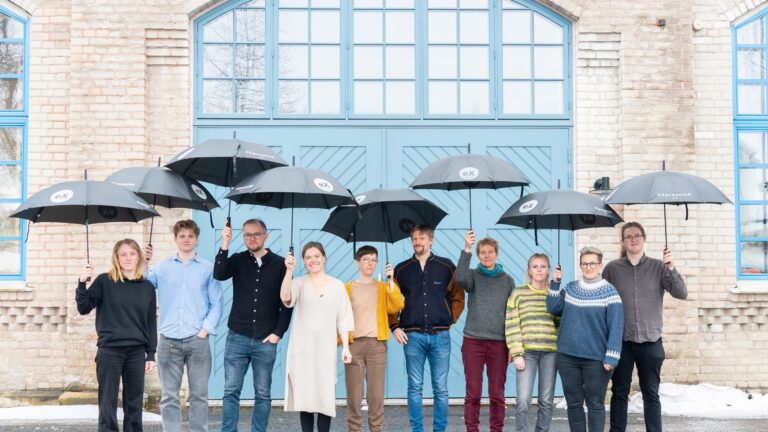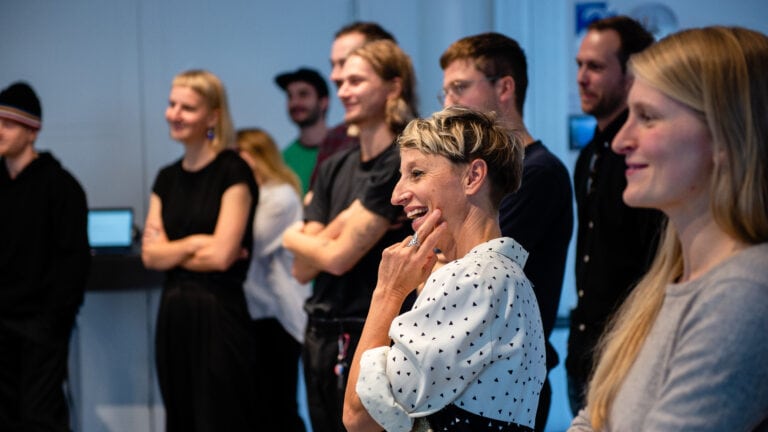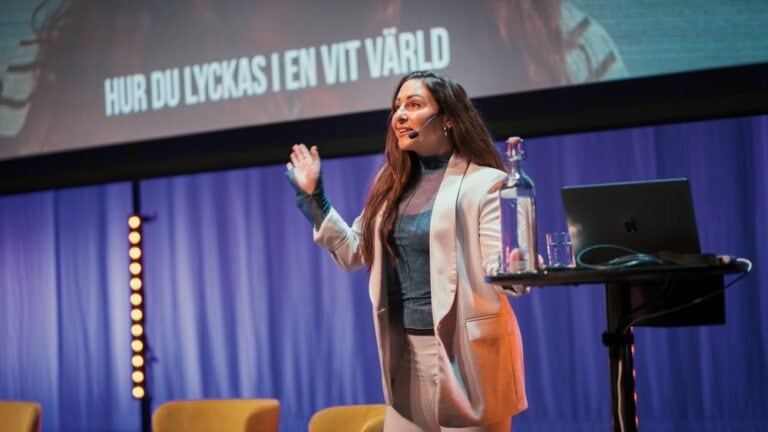Natalie Carrion and Magda Andersson are two Umeå artists and entrepreneurs who, in times of cancelled gigs and tours, have replaced physical stages with social digital channels and managed to reach a wider audience. The artists participated in eXpression Live together with Västerbotten's regional culture director, Joakim Sandberg, and shared their experiences and insights about having to change, exploring new ground and what it means to be an artist in a time when everything is turned upside down.
The music and entertainment industry has been hit hard by the the pandemic has gripped large parts of society. Cancelled gigs and tours means that revenue streams are being choked off for promoters and stage technicians and musicians - and it's easy to despair. Natalie Carrion and Magda Andersson are two Umeå artists who have not let themselves discouraged. When the rug was suddenly pulled out from under their feet, they found new ways forward.
Annakarin Nyberg, who moderated the live digital forum eXpression Live, had the opportunity to talk to the artists and reflect together with Region Västerbotten's Regional Culture Director, Joakim Sandberg, who has long experience of development work in the media industry, around the theme: "When Umeå's artists take the digital stage".
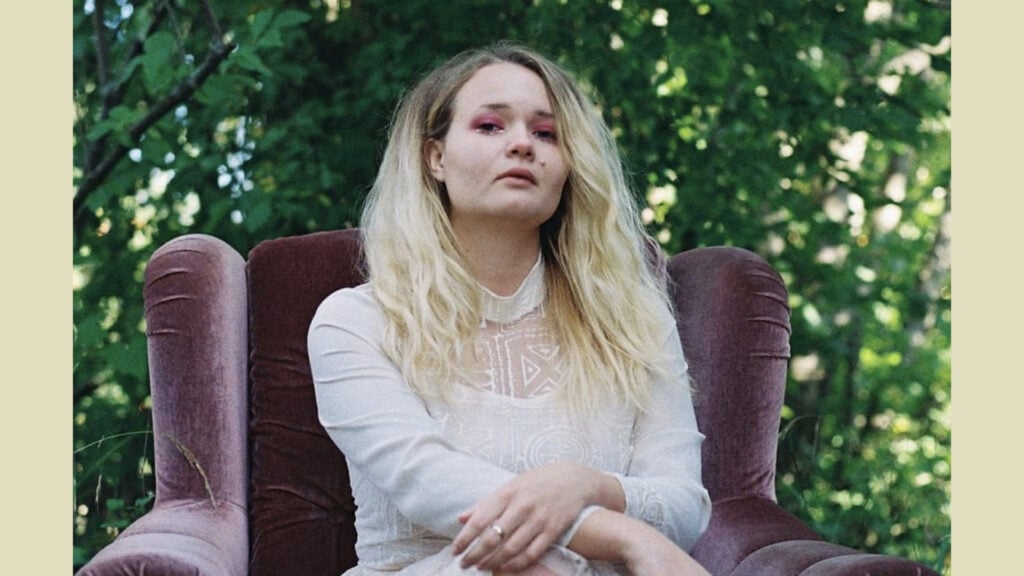
MAGDA ANDERSSON
First up was singer/songwriter Magda Andersson, as at alongside his solo career, has a leading role in the much-publicised folk-pirate band Je Banished Privateers.
You were looking forward to a spring of gigs and concerts, what happened?
- The biggest part of my business is playing live, both as a singer/songwriter and with the band, Magda replies. It was exciting to say the least, when suddenly everything was cancelled and I was completely without a commission.
The band Je Banished Privateers, fronted by Magda, planned to a big release party in Umeå Folketshus. The pirates had sold a lot of tickets, booked technicians and all were ready to work. They got completely change their minds.
- I thought we'd make something cool out of the situation by broadcasting the release party live on social media.
How many people did you reach and what happened to the number views?
- 10,000 people watched our live broadcast and now I think the video is up to about 20,000 views. It was a much bigger audience than we had imagined.
I guess you reached out to a wider audience?
- There were probably quite a few people who had listened to us before but not seen us live, now they got the chance. There were viewers from all over Europe and from other parts of the world, such as North America, who joined us. Our music is very much based on belonging to a community. It's a special following - pirate people who are very interested in the subject. They sew like their own clothes. Now we could show ourselves globally in a new way and be given the opportunity to meet our followers.
Faced with this, there was quite a lot of economic anxiety, how how did it go?
- It went pretty well anyway. We took a big risk, went all in. I figured if we're going to do something that matters, we have to do it properly. In our case, putting up a mobile camera wouldn't work. We put quite a lot money on the production but it also got a good response - we got help from sponsors and donations from people who wanted to support us. Despite quite high costs, I would say we went we went plus-minus-zero, but with perspective this will have been a good investment.
Through a physical encounter you get power from the audience, it is contagious. Now you can't see the people you're playing for. What do you need to consider when working with live music?
- It is important to distinguish between a livestreamed concert and a "regular" one. You have to work on being active. We have experience of recording music videos, which helped us to act towards a camera. It's the same thinking in a way but it requires more of you performing. If you have a lot of people on stage, you can benefit from each other's energy.
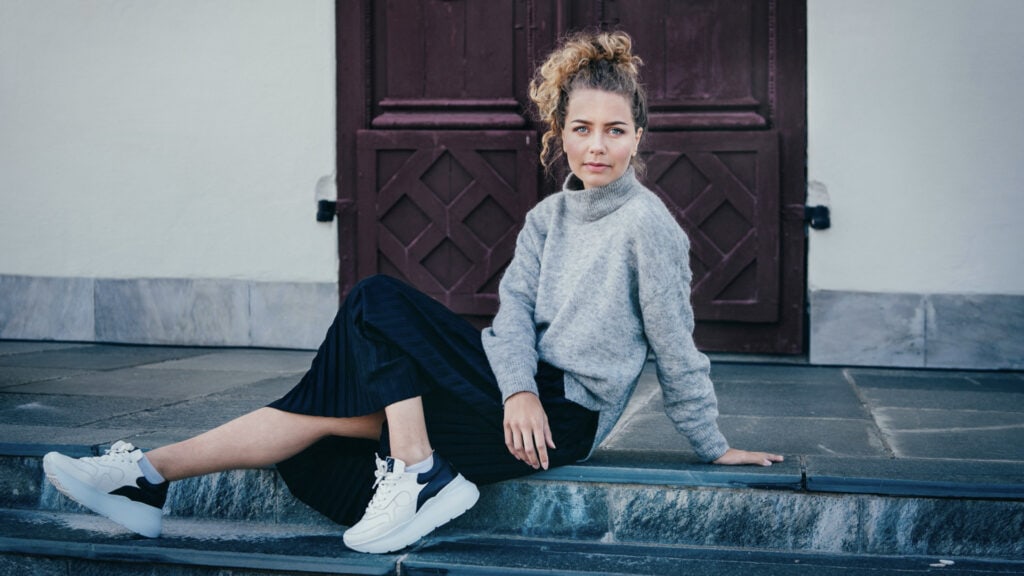
NATALIE CARRION
Natalie is described as a 90-something with one foot in Sápmi and one in the Caribbean islands. She's the songwriter and artist who, with an incurable optimism, is not satisfied with anything less than having changed the world with her entrepreneurship.
You faced a similar situation to Magda. Gigs that just fell away, one by one. On top of that, you were on your way to the US to attend a big trade show - which I know you worked hard for. You had to carve out your digital stage in a short time. Tell me how the thinking went.
- The expression "the future belongs to those who believe in it" is something I truly believe in. Even in challenging times, we must choose to believe in the future. That's how the thoughts went. The situation affects so many, not just us who are involved in music. It's important to see more perspectives and not stop in your own bubble," says Natalie.
- I had seen others in Norway who had put the scenes online and made it work both from an audience and financial perspective. I set up a simple living room session with my guitarist Jonas, in his apartment. In our case, it was simple and stripped down using a mobile camera. I wanted to get up close and personal.
What would you say is the biggest difference that preparing for this type of gig versus what you're used to?
- I love having contact with the people who book and to discuss thoughts and ideas between each other. You have a completely different dialogue, a dialogue that I really appreciate. This time there was no other organiser, but I I had to do everything myself and develop the concept.
Would you say that it is other skills that are important in such a situation?
- Yes, it is clear that the technology is different and plays important. How you hook up a camera and create a livestream, that's what you do usually do. Another important skill is how to have a dialogue with the audience - to be able to talk naturally to those you can't see. It's about being on and have energy all the time. There are challenges along the way that are not obvious at first but that you learn by discovering. I took a some help from friends who are good.
There were a lot of comments in your live broadcast. Were you able to follow it when you played?
- We had a computer in front of us so we could see what people were writing and who was on live. The whole thing is the interaction and then you need to be present and show that you see them. We encouraged people to spread the word and start the video party (a feature on facebook). I hope the audience experienced that it was a live dialogue.
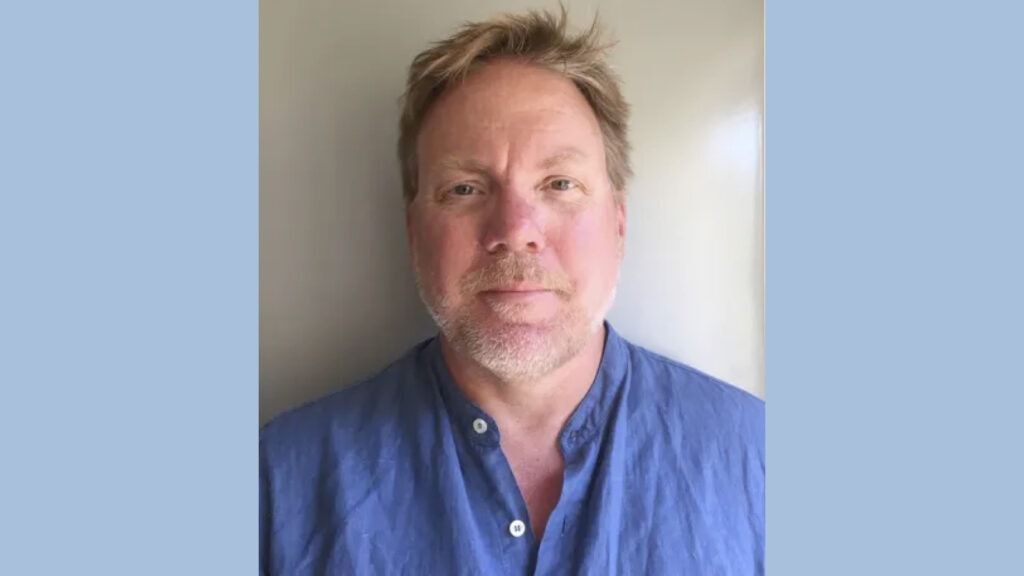
JOAKIM SANDBERG
Joakim Sandberg is a relatively new regional culture manager at Region Västerbotten and comes most recently from Dreamhack. Before that, he worked with public service and developing TV and media productions.
- It's so nice that there are so many young people create culture in Västerbotten. You've got it all covered. Good artistry is about about thinking about what you want to deliver and then delivering it. The presence that both Magda and Natalie have mentioned, is so important. In the old days, you would create albums and hold concerts and follow the label's directives. Today it's not like that. You are a creator all the time and there are so many different ways to reach out and interact with your audience.
Is the role of the artist forever changed by digitalization?
- It has probably been reinforced. artist now that everything is 24/7 and you have to relate to multiple media. You're also more exposed today which means you need a good social safety net. It becomes important to assemble a good team while work on leveraging the benefits of digital channels.
You have experience from SVT and TV where you work towards a camera. What advice do you have to give given your background?
- It is very important to be able to keep two thoughts going simultaneously. Don't lose your ability to live, just because we're trapped in a pandemic right now, demand will not decrease, quite the opposite. Standing in front of a TV camera is standing in front of a black hole and that's part of professional training for performers - to be able to act out all the takes and messages even though you don't have anyone in front of you. It's important to learn.
Joakim, when you took office, you said that "it is fun and challenging to work with Västerbotten's rich cultural heritage and new modern phenomena". If we're standing here in a year's time, what will you say then?
- I will still think so. A year from now, we'll be standing with the experience that the effects of the coronavirus have given us and it will touch and influence our art - in what way remains to be seen. Most artists and creators in Västerbotten are part of a larger context where they work locally but are in a global network. You might think that this is something new, but it's possible echoes of this can also be found in Sara Lidman's texts. We are connected with the world, it's just becoming more apparent now that technology is developing.
eXpression Live: "When Umeå's artists occupy the digital stage" was broadcast on 7 April via the Zoom video meeting service. Stay tuned for more events on our website and social media.


